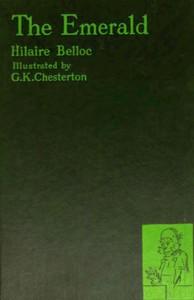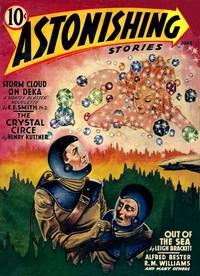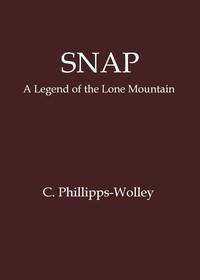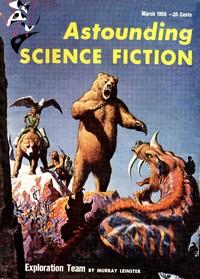|
|
Read this ebook for free! No credit card needed, absolutely nothing to pay.Words: 49429 in 21 pages
This is an ebook sharing website. You can read the uploaded ebooks for free here. No credit cards needed, nothing to pay. If you want to own a digital copy of the ebook, or want to read offline with your favorite ebook-reader, then you can choose to buy and download the ebook.

: The emerald of Catherine the Great by Belloc Hilaire Chesterton G K Gilbert Keith Illustrator - English fiction 20th century@FreeBooksThu 08 Jun, 2023 THE MILESTONES OF HUMAN PROGRESS. The subject pertains directly to the advancement of the race. Indeed, it is to the measure of this advancement I shall ask your attention. There is no doubt about the advancement. There are some people who believed and believe that man began in a state of high development and has since then degenerated into his present condition. The belief in some period of Arcadian simplicity and human perfection is still to be found in some remote nooks and crannies of the learned world; but those minds who have been trained in archaeological studies and in ethnographic observations know well that when we go back to the most ancient deposits, in which we find any sign of man at all on the globe, we find also the proofs that man then lived in the rudest possible condition of savagery. He has, little by little, through long centuries and millenniums of painful struggle, survived in made his weapons and his most effective tools for the time being would be a good criterion to go by, because these weapons and tools enabled him to conquer not only the wild beasts around him and his fellow man also, but nature as well. These materials are three in number. They particularly apply to European archaeology, but, in a general way, to the archaeology of all continents. The one is stone, which gave man material for the best cutting edge which he could make for very many millenniums of his existence. After that, for a comparatively short period, he availed himself of bronze--of the mixture of copper and tin called bronze--an admixture giving a considerable degree of hardness and therefore allowing polish and edge making. The bronze age was not long anywhere. It was succeeded by that metal which, beyond all others, has been of signal utility to man--iron. We live in the iron age, and it is from iron in some of its forms and products that all our best weapons and materials for implements, etc., are derived. We have, therefore, the ages of stone, of bronze and of iron. These are the measures, from an artistic source, of the advancement of human culture; and they certainly bear a distinct relation to all man's other conditions at the time. A tribe which had never progressed beyond the stone age--which had no better material for its weapons and implements than stone--could never proceed beyond a very limited point of civilization. Bronze or any metal which can be moulded, hammered and sharpened of course gives a nation vast superiority over one which uses stone only; and the value of iron and steel for the same purposes I need not dwell upon. To be sure, we have here several measures; and it would seem more desirable, if we could, to obtain one single measure--one single material or object of which we could say that the tribe that uses or does not use that to an equal degree is certainly lower or, in the other respects, higher than another; but I believe that there has been no single material which has been suggested as of sufficient use and value in this direction to serve as a criterion; but, yes! I remember there was one and, on the whole, not a bad one. It was suggested by Baron Liebig, the celebrated chemist, who said: "If you wish a single material by which to judge of the amount of culture that any nation, or, for that matter, any individual, possesses, compared to another one, find out how much soap they use. Nothing," he said, "more than personal cleanliness and general cleanliness differentiates the cultured man from the savage;" and as for that purpose he probably had in view a soap, he recognized that as the one criterion. It is not amiss, but open, also, to serious objections; because there are tribes who live in such conditions that they can get neither water nor soap; and the Arabs, distinctly clean, are not by any means at the highest pinnacle of civilization. The Germans, therefore, as a rule, have sought some other means than all those above mentioned. Almost all the German writers on ethnography divide the people and nations of the world into two great classes--the one they call the "wild peoples," the other the "cultured peoples"--the "Natur-Voelker" and the "Kultur-Voelker." The distinction which they draw between these two great classes is largely psychological. Man, they say, in the condition of the "wild people"--of the "Natur-Voelker"--is subject to nature; therefore, they call them "nature people." The "Kultur-Voelker," on the other hand, have emancipated themselves, in great measure, from the control of nature. Furthermore, the man in the condition of the "wild people" is in a condition of practically unconscious life: he has not yet arrived at self-consciousness--he does not know and recognize his individuality--the "Ego"--"das ich;" that is a discovery which comes with the "Kultur-Voelker"--with the "cultured people;" and just in proportion as an individual achieves a completely clear idea of his own self-existence, his self-consciousness, his individuality, to that extent he is emancipated from the mere control of nature around him and rises in the scale of culture. Again, to make this difference between the two still more apparent, it is the conflict between the instinctive desires and the human heart and soul and the intelligent desires--those desires which we have by instinct, which we have by heredity and which have been inculcated into us wholly by our surroundings, which we drink in and accept without any internal discussion of them: those are instinctive in character. We go about our business, we transact the daily affairs of life, we accept our religion and politics, not from any internal conviction of our own or positive examination, but from our surroundings. To that extent people are acting instinctively; and, as such, they are on a lower stage of culture than those who arrive at such results for themselves through intelligent personal effort. This is a real distinction also, although somewhat more subtle, perhaps, than the ones previously given. Therefore, the differentiation made by the German ethnographers between wild people and the cultured peoples is, in the main, right; but it does not admit of any sharp line of distinction between the two. We cannot draw a fixed line and say, "On this side are the cultured people and on that the wild," because there are many tribes and nations who are about that line, in some respects on one side of it, in others on the other; but in a broad, general way this distinction is one we should keep in our minds as being based upon careful studies and real distinctions. Usually the writers in the English tongue prefer a different basis than any of these which I have mentioned; they prefer the basis as to whence is derived the food supply of a nation, or a tribe; and on the source of that food supply they divide nations and tribes into the more or less cultured. In earliest times the food supply is furnished entirely by natural means; there is little or no agriculture known to speak of; there is nothing in the way of preserving domestic animals for food; hunting the wild beasts of the forests and fishing in the streams are the two sources. Therefore, we call that last condition the hunting and fishing stage of human development. You will observe that when that prevails there can be no congregation of men into large bodies. Such a thing as a city would be unknown. The food supply is eminently precarious. It depends upon the season and upon a thousand matters not under the control of man in any way. Moreover, inasmuch as the supply at the best is uncertain, it allows but a very limited population in a district; nor does it permit any permanent or stable inhabitations. The towns, such as they are, must be movable; they must go to one part of the country in the summer and another in the winter; they must follow the game and the fruits; and in that condition, therefore, of unstable life it is not possible for a nation or a tribe to gain any great advance. You observe, therefore, that when the food supply is drawn from this source it does entail a general depravity of culture everywhere. Above that would come the food supply which is obtained from other sources. There is one which is not universal but still widely extended, and that is the pastoral life. There are many tribes who live on their herds and drive their herds from one pasture to another in order to obtain the best forage. This nomadic and pastoral life extended very widely over the old world in ancient times, but existed nowhere in the new world, for the simple reason that they had no domesticated animals. Our own remote ancestors--both the Aryans and the Semites--all the early ancestors of the white race so far as known, were pastoral or nomadic; and the Aryans of central Europe remained so until after the fall of Rome, when, for the first time, they became practically sedentary. This nomadic and pastoral life is a very great advance over the mere hunting and fishing stage. It requires considerable care and attention to domesticate the wild animals in any sufficient quantity to form a reliable source of food. Moreover, the attention which it was necessary to give to the rearing and training and the looking after domestic animals was to a certain extent, humanizing. When a man found that it was necessary to be careful about his animals, he would also be careful about his neighbors. We would say that the same sense which enabled him, or directed him, to look after the welfare of the herd would justify and, in fact, impel him to look after that of man also; so that the nomadic and pastoral life, although not stable nor favorable to the development of cities, nor the great extension of commerce, was nevertheless a decided advance over the ruder hunting and fishing stage. So far as we know, neither Aryan nor Semite ever depended upon a hunting and fishing stage. They doubtless did, but not in the time of any history that we know. The Bedouins, etc., wandering tribes to-day, and, among the Semitic, the Tuaregs of the Sahara, are a purely nomadic or pastoral race; yet are very much above the negroes of the south, who depend upon hunting and fishing. Above it, however, and a very great improvement upon it, is the agricultural stage, where the main source of the food supply is the harvests. You observe, at once, that that means a sedentary life. When a man sows corn, he must wait thereabout and tend it and till it and finally reap it and store it and thrash it and then preserve the grain and build granaries for it; and it involves, in fact, the remaining in one place all the whole year; and then the regularity of that life led very distinctly to making men regular, generally, in their habits. They wanted to defend their homes--defend these grain fields of theirs, or starvation would result; therefore, they built towers and strong-walled cities; and they took great care in the selection of the best men among them to do the fighting, while others looked after the crop. We find that agriculture began at a very, very early period in both continents. In our own continent we cannot tell when agriculture was first in use--the main crop being the maize, or Indian corn. It was raised by the more advanced tribes from the extreme north, where its profitable culture invited, to the extreme south, from about the northern line of Wisconsin in North America to the latitude of southern Chile in South--extending, therefore, over some seven to eight thousand miles of linear distance. In the old world we know they had barley, rye and a species of millet; and later on they were introduced to oats and wheat and a variety of others. Rice was of the very earliest of our cereals, in the extreme east of the old world. Wherever we find a very ancient civilization we also find that it is intimately connected with some important cereal, and it has been said that all you have to do is to study botany--the history of botany--and you will find the history of human culture; and much there is that could be said for that. Fourth, and finally, those who divide human culture according to the food supply consider that the highest stage is reached through commerce. Commerce brings to all the great centers of human life the food essential to their sustenance. It would be absolutely impossible--obviously so--to have a city like Philadelphia in existence for a month without constant and ceaseless commerce brought here the food for its inhabitants. It is quite likely that, were Philadelphia shut off at once from all connection with the world, within ten days there would be an absolute famine here--so closely do we depend upon our commercial supplies for our subsistence. These supplies are not drawn from any one locality; were we to draw a radius of five hundred miles around our great city of a million inhabitants, we should still find that the greater part of our food supply comes from a wider distance from us than that; and there is no one of us that will go to his table this evening but will see upon that table food products drawn from every quarter of the world. Thus it is that commerce enables man to reach an indefinite degree of consolidation; and it is through consolidation--through the more and more intimate relationship, and the closer and closer juxtaposition of man--that his real benefit and progress may be derived. These, therefore, are the four stages of culture, as depending upon food supply: the hunting and fishing stage, the nomadic or pastoral, the agricultural and the commercial. These have been generally adopted by English writers, and they are so adopted to-day; and you will probably find them in many of the text books. Free books android app tbrJar TBR JAR Read Free books online gutenberg More posts by @FreeBooks
: The Crystal Circe by Kuttner Henry Musacchia John B Illustrator - Science fiction; Male friendship Fiction; Storytelling Fiction; Human-alien encounters Fiction; Asteroids Fiction; Meteorites Fiction@FreeBooksThu 08 Jun, 2023

: Snap: A legend of the Lone Mountain by Phillipps Wolley Clive Willink H G Henry George Illustrator - English fiction 19th century; Canadian Rockies (B.C. and Alta.) Fiction; Mountaineering Fiction@FreeBooksThu 08 Jun, 2023
|
Terms of Use Stock Market News! © gutenberg.org.in2025 All Rights reserved.






